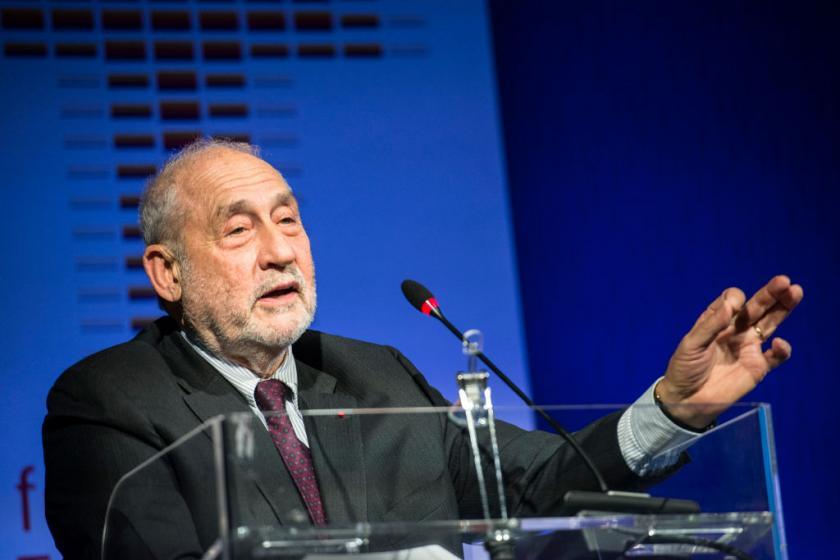[ad_1]
Axios
Biden’s spending plans could mean “a new world,” says Nobel Prize winner Joseph Stiglitz
A Nobel Prize-winning economist says he not only endorses President Biden’s expected $4 trillion infrastructure spending plan, but expects that it could break the U.S. out of the low-growth, low-inflation environment that has existed for the past 20 years.Why it matters: The combination of Biden’s $1.9 trillion coronavirus relief plan and the expected Build Back Better program, mean the U.S. “may be in a very good position to get back into a more normal economy,” Columbia University Professor Joseph Stiglitz told Axios in an exclusive interview.Get market news worthy of your time with Axios Markets. Subscribe for free.”We’ve been for the last two decades in an abnormal environment, we’ve been in a bad equilibrium trap,” he said.”The inequality means people don’t have demand, a lack of demand means we don’t invest, so we’ve been in a very bad, vicious circle and I’m optimistic that this may break us out into a new period of strong growth, which is more egalitarian.”The big picture: U.S. growth has been stuck at around 2% since 2000, averaging 2.1% a year, compared to the country’s long-run average of closer to 4%. Economists have argued about whether the growth decline is a result of increasing debt, rising economic inequality, declining investment and other reversible trends or is simply the consequence of an aging population and natural factors.Where it stands: If Biden’s infrastructure proposal becomes law, “We’re going to heat up the economy,” said Stiglitz, who was awarded the 2001 Nobel Prize in Economics.”We’re going to be investing, spending money on education, child care, a whole variety of expenditures across the spectrum and not just giving money to the very rich but giving money to people who actually spend it.”That will create more demand and that should give people more confidence to invest.”Don’t sleep: That investment should also mean the Fed can pare back its exceptional monetary policy, Stiglitz added, and allow markets to function more normally.”Now we’re in a new world, and the defining characteristic is that fiscal policy is back.” “As we become more secure that we are in the path of recovery, backstops become less important, its easier for them to be phased out, and over time we’ll go back to more normal monetary policy, interest rates will go back to normal.”Yes, but: “I caution this by saying that we are in very uncertain territory,” the former World Bank chief economist, White House adviser and chairman of the U.N. Commission on Reforms of the International Monetary and Financial System warned.”None of us know fully the nature of the scarring of the economy.”More from Axios: Sign up to get the latest market trends with Axios Markets. Subscribe for free
[ad_2]
Source link



